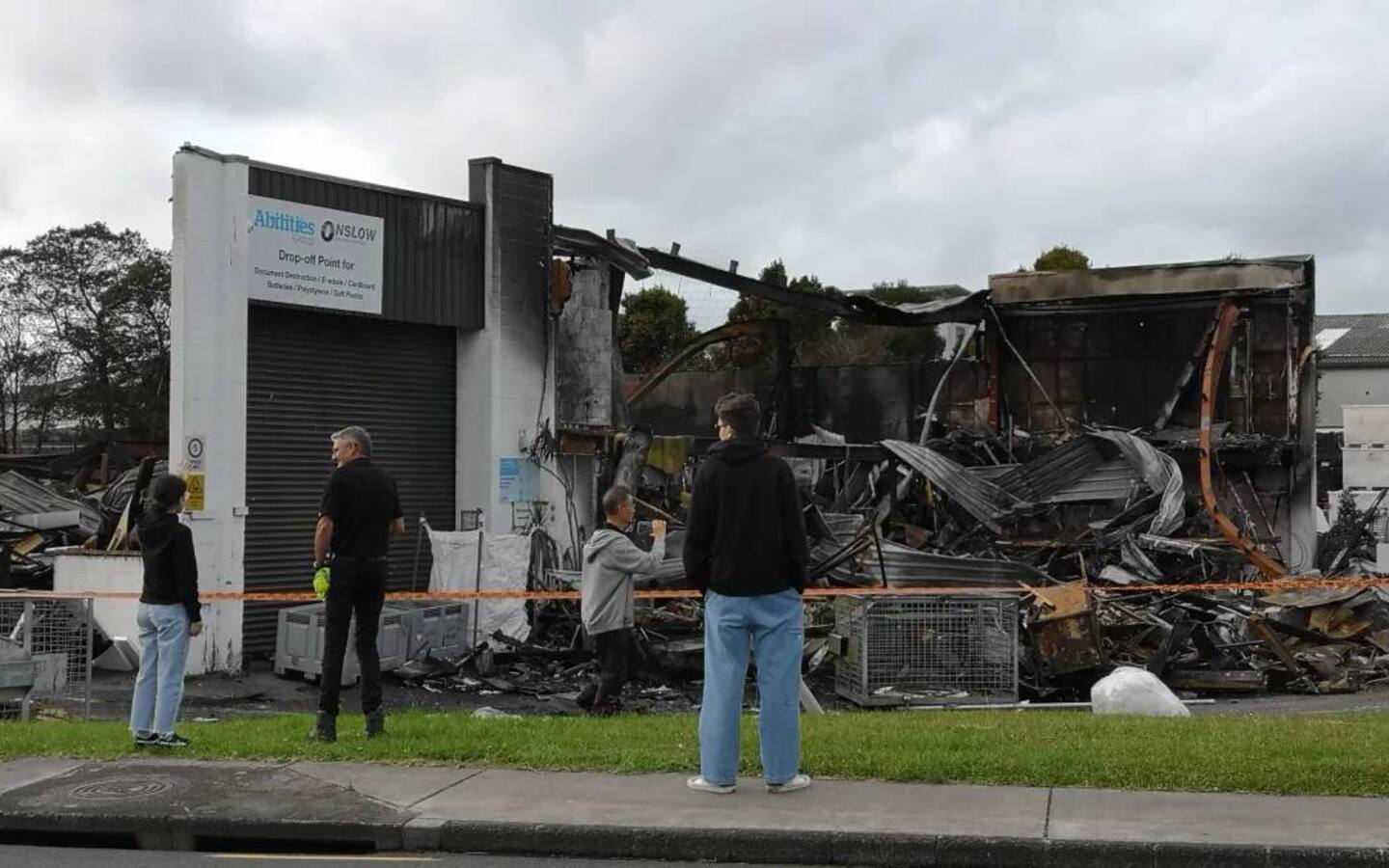- Auckland Council welcomes a $30,000 fine for Simsmetal Industries after a fire caused by lithium-ion batteries.
- Judge Jeff Smith highlighted the global issue of battery disposal, noting the lack of detection technology.
- The council emphasised industry responsibility and proactive risk management for battery disposal challenges.
A South Auckland recycling firm has been fined for a fire caused by lithium-ion batteries, with Auckland Council calling it a wake-up call for industry vigilance on battery disposal.
Simsmetal Industries was fined $30,000 in a case brought by the council in the Auckland District Court after a fire at its scrap metal yard in Favona in July 2023.
The incident, caused by the ignition of a lithium-ion battery within a large scrap metal stockpile, released toxic smoke across parts of Auckland and highlighted a growing national and international issue surrounding battery disposal and fire risk.
Last week, the council issued a similar call urging the public to dispose of batteries properly after the devastating North Shore fire at the Abilities Group recycling plant.
The Glenfield plant caught fire last Thursday evening, burning to the ground and destroying essential equipment.
The organisation provided employment and support to more than 100 disabled people.
In a statement today, Fire and Emergency NZ community education manager Tom Ronaldson said the organisation encouraged people and businesses to dispose of used lithium-ion batteries safely.

The Abilities Group recycling plant in Glenfield burned down on Thursday night. Photo / RNZ / Kaye Albert
“Do not place lithium-ion batteries into the general rubbish collection – they should be taken to battery collection locations or transfer stations to be recycled. We also advise people not to leave discarded batteries in piles.”
In the Simsmetal Industries case, Judge Jeff Smith recognised the unique challenges posed by lithium-ion batteries, noting there is currently no available technology capable of reliably identifying or detecting them within scrap material.
The judge described the situation as “a new and emerging issue”, which had led to fires not only in New Zealand but around the globe.

The aftermath of a massive fire at Abilities Group recycling plant on April 24. The charity which provided work for disabled people was destroyed in the fire that may have been started by a lithium battery.
While acknowledging Simsmetal’s co-operation and the absence of any intentional wrongdoing, Judge Smith imposed a fine of $30,000, reduced from an initial starting point of $50,000, to reflect an early guilty plea, meaningful co-operation, and the agreement to enforcement orders.
The enforcement orders require Simsmetal to implement several improvements at the James Fletcher Drive, Favona site.
These include the completion of a secondary access point to the site by May 2025, the development of a certified Fire Risk Management Plan and a Stockpile Management Plan. The orders are registered with the Environment Court and will remain in place unless superseded by conditions with a new resource consent.
“There has been considerable difficulty in finding a technical solution to the problems with batteries catching on fire,” Judge Smith said.
“This is not only a national problem but an international one; these orders form a workaround solution until more technical solutions, particularly for bulk disposal, are available.”
David Pawson, Auckland Council’s field operations manager for compliance, emphasised the importance of remaining vigilant despite the novelty of the issue.
“We recognise this is a new issue and we’re all finding our way with lithium-ion batteries and those handling them.

An exploding lithium-ion battery caused this house fire in Wanaka in 2022. Photo / Chris Adam
“But businesses still need to take responsibility for their disposal - this is their business. While we’re all working on solutions, consent conditions still need to be met.”
The council viewed the case as an important precedent in balancing empathy for emerging challenges with the necessity of regulatory compliance.
It also highlighted the importance of proactive risk management and industry-wide collaboration to adapt to evolving environmental risks.
Take your Radio, Podcasts and Music with you









